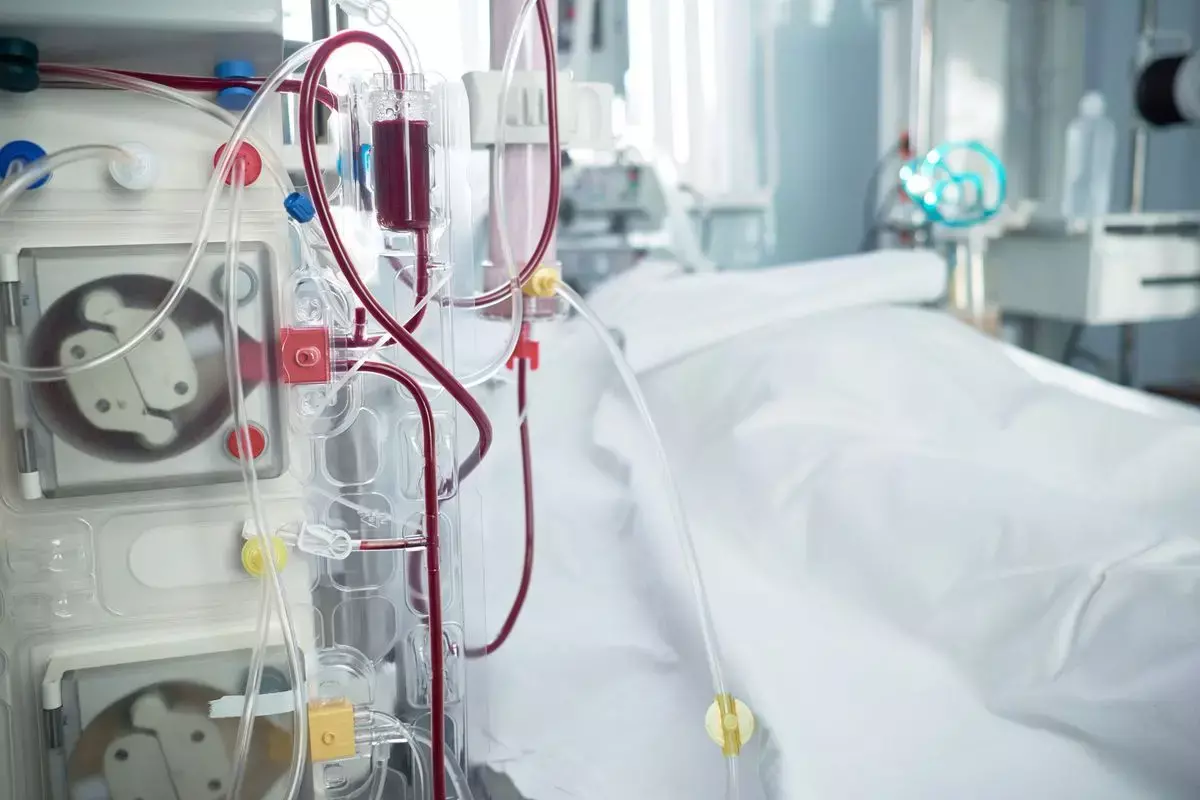- Home
- Medical news & Guidelines
- Anesthesiology
- Cardiology and CTVS
- Critical Care
- Dentistry
- Dermatology
- Diabetes and Endocrinology
- ENT
- Gastroenterology
- Medicine
- Nephrology
- Neurology
- Obstretics-Gynaecology
- Oncology
- Ophthalmology
- Orthopaedics
- Pediatrics-Neonatology
- Psychiatry
- Pulmonology
- Radiology
- Surgery
- Urology
- Laboratory Medicine
- Diet
- Nursing
- Paramedical
- Physiotherapy
- Health news
- Fact Check
- Bone Health Fact Check
- Brain Health Fact Check
- Cancer Related Fact Check
- Child Care Fact Check
- Dental and oral health fact check
- Diabetes and metabolic health fact check
- Diet and Nutrition Fact Check
- Eye and ENT Care Fact Check
- Fitness fact check
- Gut health fact check
- Heart health fact check
- Kidney health fact check
- Medical education fact check
- Men's health fact check
- Respiratory fact check
- Skin and hair care fact check
- Vaccine and Immunization fact check
- Women's health fact check
- AYUSH
- State News
- Andaman and Nicobar Islands
- Andhra Pradesh
- Arunachal Pradesh
- Assam
- Bihar
- Chandigarh
- Chattisgarh
- Dadra and Nagar Haveli
- Daman and Diu
- Delhi
- Goa
- Gujarat
- Haryana
- Himachal Pradesh
- Jammu & Kashmir
- Jharkhand
- Karnataka
- Kerala
- Ladakh
- Lakshadweep
- Madhya Pradesh
- Maharashtra
- Manipur
- Meghalaya
- Mizoram
- Nagaland
- Odisha
- Puducherry
- Punjab
- Rajasthan
- Sikkim
- Tamil Nadu
- Telangana
- Tripura
- Uttar Pradesh
- Uttrakhand
- West Bengal
- Medical Education
- Industry
Patients receiving dialysis at higher risk of dying in hurricanes: Study

USA: Patients requiring maintenance dialysis are at a greater risk of mortality in 30 days following a hurricane, says an article published in the Journal of the American Society of Nephrology.
Hurricanes are extreme weather conditions that can cause problems with transportation, water, and electricity infrastructure. Patients who require maintenance dialysis may die as a result of these interruptions. Therefore, it was predicted by Matthew F. Blum and colleagues that in the 30 days following a storm, the mortality risk among patients requiring maintenance dialysis would rise.
Patients who began treatment in one of the 108 hurricane-affected counties between January 1, 1997 and December 31, 2017 and who were registered as needing maintenance dialysis in the United States Renal Data System were tracked until transplantation, discontinuation of treatment, moving to a different county, or passing away. Hurricane exposure was defined as a tropical storm event in the county of a patient's residence with peak local wind speeds of 64 knots. After the hurricane, the risk of mortality was calculated using time-varying Cox proportional hazards models.
The key findings of this study were as follows:
1. The 187,388 patients had a median age of 65 years (IQR, 53-75), and 43.7% of them were female.
2. In 529,339 person-years of follow-up on dialysis, there were 27 storms and 105,398 fatalities. 29,849 patients in total were subjected to at least one storm.
3. After controlling for demographic and socioeconomic factors, exposure to hurricanes was linked to significantly greater mortality (hazard ratio: 1.13).
4. Even after accounting for seasonality, the connection persisted.
In conclusion, future research ought to take into account cause-specific mortality, additional storm characteristics linked to increased mortality, and the relative efficacy of various storm response strategies. The population on dialysis should be taken into account in efforts to estimate the health consequences and mortality caused by climate change.
Reference:
Blum, M. F., Feng, Y., Anderson, G. B., Segev, D. L., McAdams-DeMarco, M., & Grams, M. E. (2022). Hurricanes and Mortality among Patients Receiving Dialysis. In Journal of the American Society of Nephrology (p. ASN.2021111520). American Society of Nephrology (ASN). https://doi.org/10.1681/asn.2021111520
Neuroscience Masters graduate
Jacinthlyn Sylvia, a Neuroscience Master's graduate from Chennai has worked extensively in deciphering the neurobiology of cognition and motor control in aging. She also has spread-out exposure to Neurosurgery from her Bachelor’s. She is currently involved in active Neuro-Oncology research. She is an upcoming neuroscientist with a fiery passion for writing. Her news cover at Medical Dialogues feature recent discoveries and updates from the healthcare and biomedical research fields. She can be reached at editorial@medicaldialogues.in
Dr Kamal Kant Kohli-MBBS, DTCD- a chest specialist with more than 30 years of practice and a flair for writing clinical articles, Dr Kamal Kant Kohli joined Medical Dialogues as a Chief Editor of Medical News. Besides writing articles, as an editor, he proofreads and verifies all the medical content published on Medical Dialogues including those coming from journals, studies,medical conferences,guidelines etc. Email: drkohli@medicaldialogues.in. Contact no. 011-43720751


